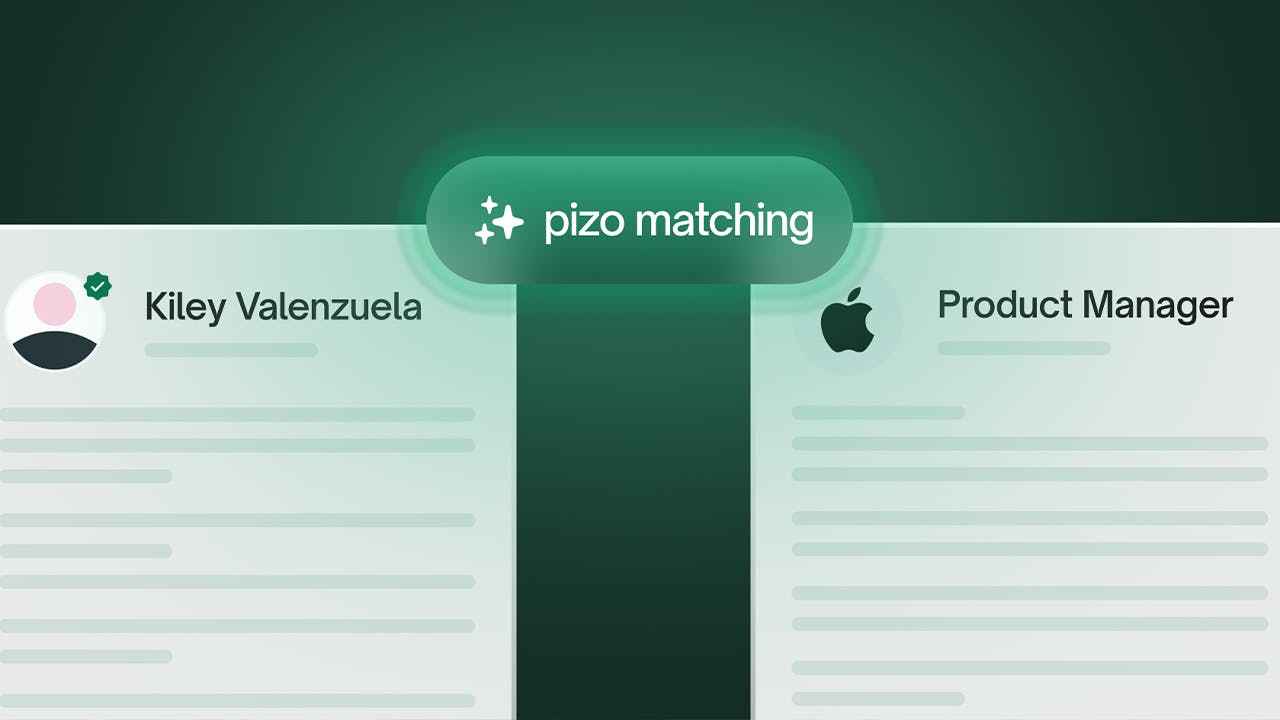Candidates are using ChatGPT and other tools to format their resumes which, even if a normal human scans through it, he or she would not be able to detect if it's a legit resume or not.
With hundreds, or even thousands, of applications pouring in for a singular position, finding the right candidate is a superhuman feat. Sure, AI could come in and cut through the bulk of applications, but it raises the question: is it ethical to let AI make choices about a job seeker's future with a company? Fortunately, some AI-powered companies are proving it’s possible to balance AI efficiency and ethically during the hiring process in a way that companies and even job applicants love.
We spoke with Javed Khatri, Cofounder of Pizo, an AI solution that automates first-round interviews, to discuss how Pizo is leveraging AI to narrow in on the right candidates for companies and working to restructure the entire interview and hiring process.
AI vs. AI: "Candidates are using ChatGPT and other tools to format their resumes which, even if a normal human scans through it, he or she would not be able to detect if it's a legit resume or not," says Khatri, setting the scene for the underlying challenges of candidate screening. "The only way to find out if a candidate is legit or not is to directly talk to them, which is practically not possible because you cannot talk to thousands of people."
Khatri’s solution addresses this volume problem head-on in an “AI versus AI” approach, using AI to cut through the pile of applications. "The value proposition of Pizo is very simple. Out of the thousands of applications you receive, Pizo tells you what are the top five candidates whom you should interview in person."
AI avatars: Pizo began as an internal tool that could "accept thousands of applications on a daily basis and scan through every profile, screen, filter, and then eventually conduct first round of interviews."
The company has continued to innovate, recently launching what Khatri describes as "the world's first two-way AI interviewer wherein companies can also clone themselves to interact with candidates" This technology enables a new kind of interview experience: "I can clone myself and instead of me appearing for the interview, my avatar can appear and conduct the entire interview," Khatri explains.
This innovation is part of Pizo's broader vision to revolutionize the hiring process. "The idea is to basically build the world's most sophisticated AI interviewer that anyone can set up in just 10 seconds to start receiving applications and interview any candidate," says Khatri.
Standardizing interviews is a challenge. Today if I conduct an interview and someone else conducts an interview, although we belong to the same company, our style of interviewing is totally different.
Mock interviews: The company is also developing a marketplace concept that further extends this capability: "Imagine a marketplace where anyone from leadership can come and create their clone on the platform," Khatri describes. This would enable candidates to practice with industry-specific interviewers: "If a candidate wants to interview with a senior engineer at Meta, they can just go on the marketplace, search for a company, see a list of people who work there and whose avatars or clones are available and simply do a mock interview with them."
Khatri shares that the mock interview function has been successful so far because it directly impacts candidates' confidence and helps them feel prepared, even before applying.
Standardizing the interview experience: Beyond screening, Pizo is addressing another critical challenge in recruitment: consistency. "Standardizing interviews is a challenge," Khatri points out. "Today if I conduct an interview and someone else conducts an interview, although we belong to the same company, our style of interviewing is totally different."
To solve this, Pizo is developing an Interview Copilot that standardizes the interview process across organizations, ensuring all candidates receive a fair and consistent experience.
Candidate experience: While many recruitment technologies focus solely on the employer's needs, Khatri emphasizes the importance of candidate experience. "One of our key metrics that we use internally is the conversion rate on our candidate experience platform," he shares. "If more candidates are appearing for the interview, it gives the company a lot of quality applications, but improves candidate experience overall."
This attention to the candidate's journey demonstrates how AI can enhance rather than dehumanize the hiring process. "At the end of the day, you are representing that company," Khatri explains. "So you have to ensure that the candidate is having a world-class experience."


